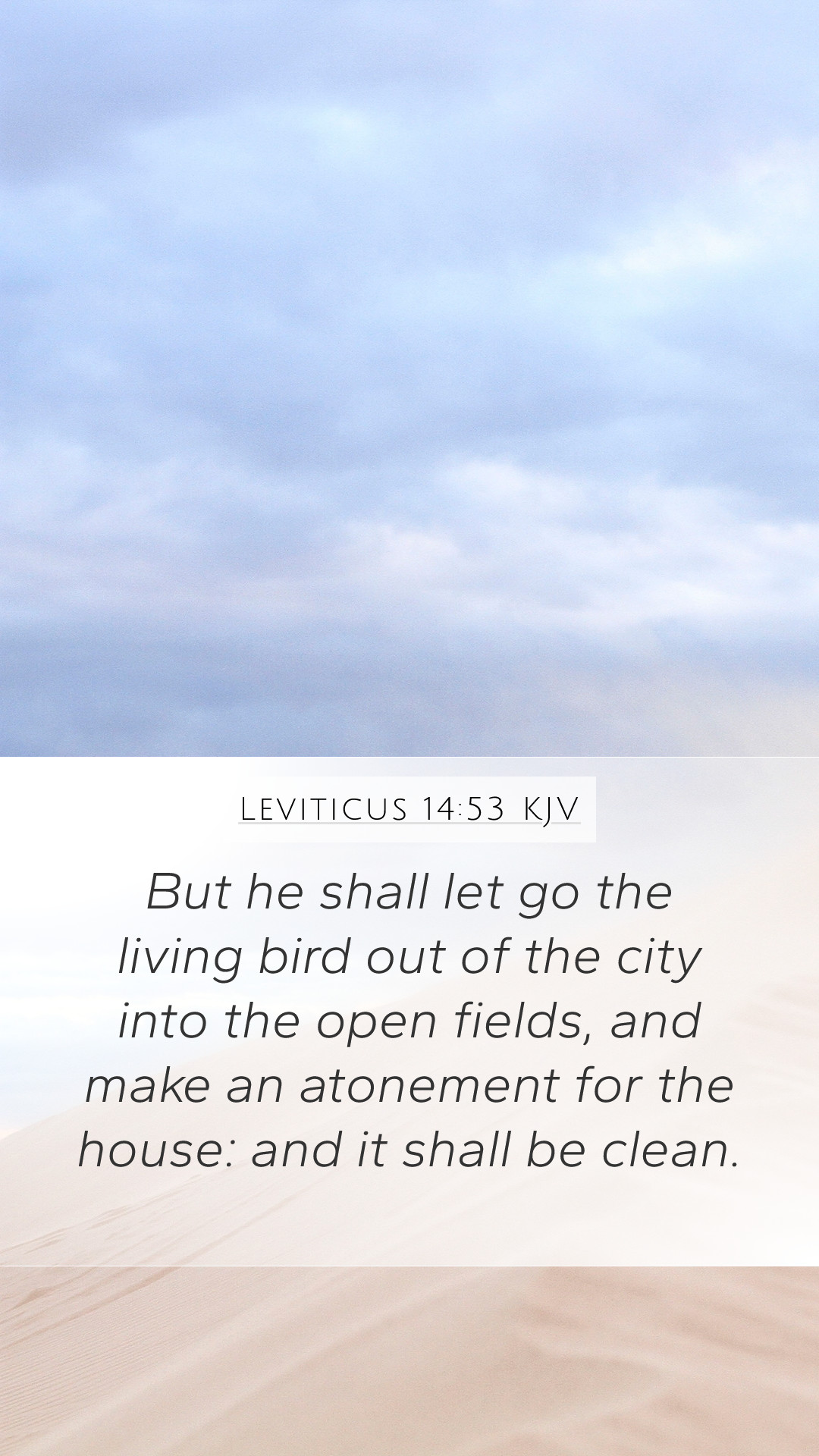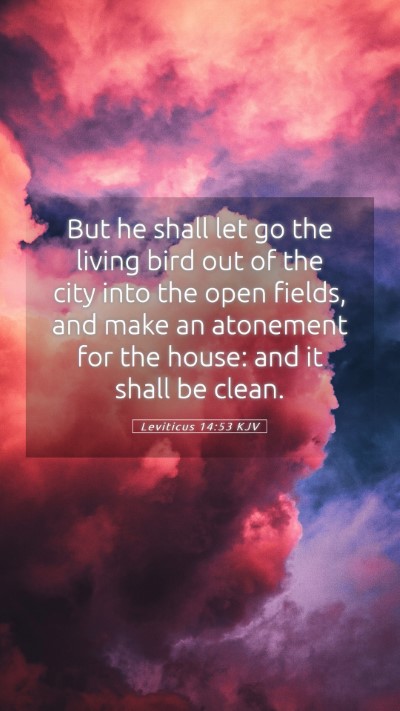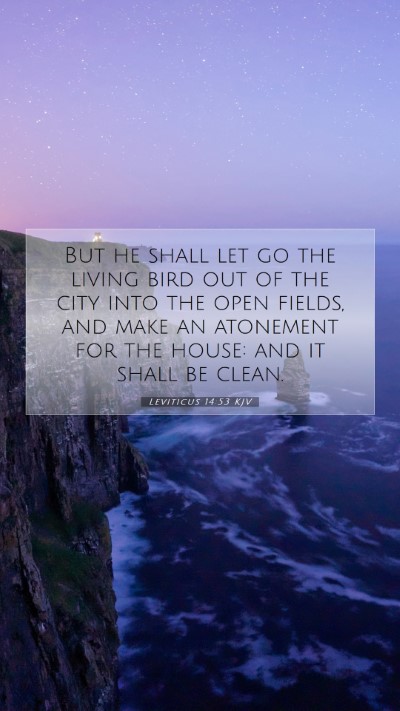Understanding Leviticus 14:53 - A Comprehensive Bible Verse Commentary
Leviticus 14:53 states: "But he shall let go the living bird out of the city into the open fields, and make an atonement for the house: and it shall be clean."
This verse is part of the ceremonial laws governing the cleansing of a house that had been afflicted with leprosy. It describes the conclusion of a ritual that involves two birds, one of which is sacrificed while the other is set free, symbolizing purification and atonement.
Key Themes and Insights
-
Symbolism of the Birds:
The living bird symbolizes freedom and the removal of sin, echoing themes of redemption and renewal found throughout Scripture. The sacrifice of the first bird represents the cost of sin and the means of atonement.
-
Cleansing of the Home:
The process speaks to God’s desire for His people to dwell in cleanliness, both physically and spiritually. It indicates the importance of maintaining purity within one’s living environment, as well as in one’s heart and actions.
-
Atonement and Restoration:
Atonement is a critical theme in the Bible. This act of letting the bird go signifies God’s mercy and the hope of restoration. Just as the leprous house is restored to purity, believers are urged to seek restoration through confession and repentance.
Commentary Insights
According to Matthew Henry, the actions described in this verse encapsulate God's desire for both outward and inward purity. The release of the living bird demonstrates God's provision for His people's spiritual needs, reflecting deep theological truths about sin, atonement, and divine grace.
Albert Barnes emphasizes the significance of the ritual in illustrating the principles of atonement. He notes that the physical act of cleansing the house serves as a reminder of the need for spiritual cleansing and the ultimate sacrifice of Christ, who takes away the sin of the world.
Adam Clarke's commentary offers a historical context, explaining that these practices were integral to the covenant community of Israel, emphasizing their strict adherence to God's laws for the sake of maintaining purity in worship and daily life.
Application of Leviticus 14:53
Understanding this verse requires not only a grasp of its literal meaning but also its application to our lives today. The ceremony highlights the need for ongoing spiritual hygiene, where believers are called to release burdens and sins that can taint their lives.
In practical terms, this could mean engaging in daily reflection and confession, seeking to 'release' things that hinder one's relationship with God. It calls Christian believers to be intentional in maintaining purity within their homes and communities, both physically and spiritually.
Related Cross References
-
Leviticus 14:6: Discusses the method of sacrifice and the symbolism of the birds.
-
Hebrews 9:22: "And almost all things are by the law purged with blood; and without shedding of blood is no remission."
-
Isaiah 53:4-5: Speaks of the suffering servant bearing our iniquities, illustrating the deeper significance of atonement.
Conclusion
Leviticus 14:53 provides profound insights into God's holiness and mercy. The ceremonial actions depicted in the verse not only served the Israelites but also foreshadow the ultimate atonement made in Christ. Through this verse, believers are encouraged to understand the significance of purification and to maintain a lifestyle that reflects God's cleansing power and grace.


